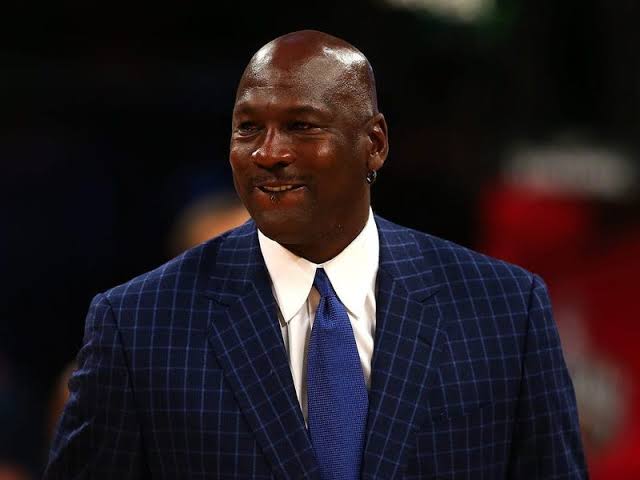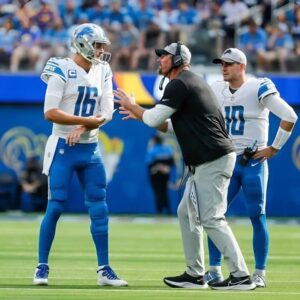
Michael Jordan is often celebrated as the greatest basketball player of all time, but his journey to that status has been fraught with controversies and challenges that have shaped both his legacy and public perception. From his fierce competitiveness to his political neutrality, Jordan’s life has been a tapestry woven with moments of brilliance and shadow. This article explores the controversies and challenges that have defined his career, revealing a more nuanced view of the icon.
The Competitive Edge: A Double-Edged Sword
Jordan’s competitive nature is legendary. His drive to win was unparalleled, often pushing his teammates to their limits. While this mindset contributed to his success—six NBA championships and five MVP awards—it also led to tension and conflict. Teammates like Scottie Pippen and Horace Grant have spoken about the intense pressure Jordan placed on them, which sometimes blurred the line between motivation and bullying.
In the documentary The Last Dance, Jordan’s ruthless pursuit of excellence was on full display, and while many admired his dedication, others criticized it as toxic. This duality raises questions about the price of greatness. Was Jordan’s approach necessary for success, or did it create an environment of fear and animosity? The answer may lie in the fact that while he achieved unparalleled success, not everyone thrived under his leadership style.
The Political Silence: A Divisive Stance
In the 1990s, as the political landscape in the United States was rapidly changing, Jordan found himself at the center of controversy for his perceived apolitical stance. During a pivotal moment in North Carolina’s political scene, he famously said, “Republicans buy sneakers, too.” This statement, while reflecting his desire to maintain commercial appeal, sparked outrage among those who expected public figures to take a stand on social issues.
Jordan’s reluctance to engage in political discussions during the civil rights movements of the time drew criticism from activists and fans alike. While he later expressed regret for his silence, many felt that his influence could have made a significant difference in advocating for social justice. This controversy highlights the tension between celebrity and responsibility, prompting ongoing discussions about the role of athletes in political discourse.
The Gambling Habit: An Ongoing Speculation
Jordan’s love for gambling has been another source of contention throughout his career. Reports of his high-stakes gambling during his playing days led to speculation and scrutiny. While he has always maintained that his gambling was recreational and did not interfere with his professional life, the perception of a problematic gambling habit lingered, especially after his abrupt retirement in 1993.
The media seized on his gambling, often linking it to his temporary retirement and the tragic murder of his father. While there is no evidence that gambling was directly responsible for his departure from the NBA, the narrative persisted, painting Jordan as a flawed hero. This aspect of his life serves as a reminder that even the greatest athletes are human, subject to the same vices and challenges as anyone else.
The Divorce and Personal Struggles
Jordan’s personal life has not been without its challenges. His highly publicized divorce from Juanita Vanoy in 2006 was a media spectacle, and the couple’s marital struggles were scrutinized by the public. The divorce settlement reportedly cost Jordan around $168 million, making it one of the largest in sports history.
While this chapter of his life revealed the complexities of relationships under the spotlight, it also humanized the basketball legend. Jordan’s experience with personal loss and emotional turmoil mirrors those of countless individuals, shedding light on the fact that fame and success do not shield one from heartache.
The Ownership Struggles: A New Challenge
After retiring from the NBA, Jordan became the majority owner of the Charlotte Hornets in 2010, making him the first former NBA player to own a majority stake in a league franchise. However, his tenure as an owner has been tumultuous. Despite his legendary status, the Hornets have struggled to become a competitive team, often finishing near the bottom of the standings.
Critics have pointed to Jordan’s decision-making and management style as contributing factors to the team’s ongoing challenges. The disparity between his success as a player and his struggles as an owner has fueled debates about whether former athletes make effective executives. This situation underscores that success in one arena does not guarantee success in another, adding another layer to the complexity of Jordan’s legacy.
The Legacy of Michael Jordan: A Complex Portrait
Michael Jordan’s life and career encapsulate the complexities of fame and the challenges that accompany greatness. While his on-court achievements have cemented his status as an icon, his controversies and personal struggles provide a more nuanced understanding of who he is.
Jordan’s competitive nature, political stance, gambling habits, personal life, and ownership challenges have all contributed to the multifaceted persona that continues to fascinate fans and critics alike. As discussions about athletes’ roles in society evolve, Jordan’s journey serves as a reminder that even legends face their share of challenges and controversies.
In the end, Michael Jordan remains a symbol of excellence, but his story is also one of resilience, imperfection, and the ongoing struggle to balance personal ambition with societal expectations. As he continues to influence future generations, his legacy will be shaped not only by his triumphs but also by the lessons learned from his controversies and challenges.





